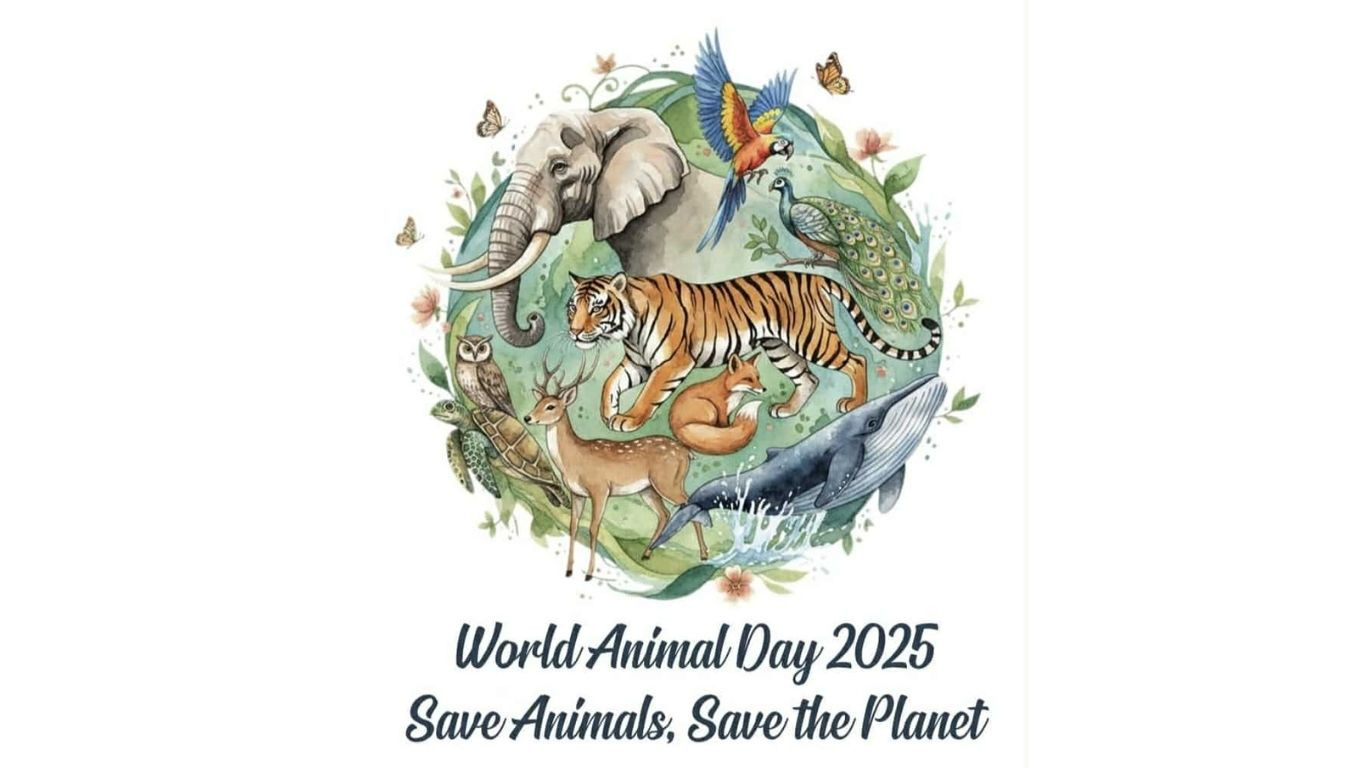Protecting Animals Requires Reproductive-Friendly Habitats
Md Sohag Rasif
Published: 04 Oct 2025

Photo: Courtesy
Under the motto “Save Animals, Save the Planet,” the 100th anniversary of World Animal Day is being observed today. Every year on October 4, this day highlights the importance of ensuring the rights of animals worldwide. To maintain the Earth’s natural balance, the Creator has designed animal species alongside humans. However, due to both human-induced activities and natural disasters, many animal species are facing extinction. Protecting them is essential to preserve the health of our planet.
A report by the World Wildlife Fund reveals that since 1970, two-thirds of the world’s wildlife population has declined. Over the past century, Bangladesh has lost 31 animal species, including 11 mammals, 19 birds, and one reptile. According to the International Union for Conservation of Nature (IUCN) in 2015, Bangladesh is home to more than 1,600 animal species, with 390 listed as threatened. Over 50 of these species are classified as critically endangered.
The rate of animal extinction in Bangladesh is alarming. Deforestation and unplanned urbanization are destroying animal habitats and migration routes, while food shortages are becoming increasingly common.
Pollution in rivers, lakes, and wetlands is rising. Overexploitation of natural resources for personal or state interests, along with illegal hunting and trafficking, has further exacerbated the situation. Climate change and natural disasters are also contributing to the decline in animal populations. As a result, one or more species disappear from the Earth each year.
Protecting animals and their habitats requires concerted efforts from both the government and private organizations. Ensuring drone- and data-based monitoring, strict law enforcement, adequate food supply, reproductive-friendly habitats, and safe movement corridors in forests, lakes, rivers, coastal areas, national parks, and wildlife sanctuaries can help restore animal populations. This approach will also maintain the natural balance of the country.
Saving animals goes beyond mere conservation—it safeguards the health of the planet. A healthy Earth ensures that humans can live sustainably in the long term. Therefore, raising awareness and practicing humane behavior toward animals and biodiversity is a moral responsibility.
According to the World Animal Day website, this year’s theme emphasizes the connection between animal welfare and the health of our planet.
The day was first initiated in 1925 by Heinrich Zimmermann, a German writer and publisher, at the Berlin Sport Palace. He wrote about it in his magazine, Mensch und Hund (Man and Dog). The first celebration took place on October 4, 1929. Initially, residents of Germany, Austria, Switzerland, and Czechoslovakia observed the day. Later, in 1931, the International Animal Protection Congress in Florence, Italy, officially recognized October 4 as World Animal Day. Today, it is celebrated globally, with a UK-based animal welfare charity leading and sponsoring the initiative since 2003.
Writer
Former Student Department of Zoology, Jagannath University

